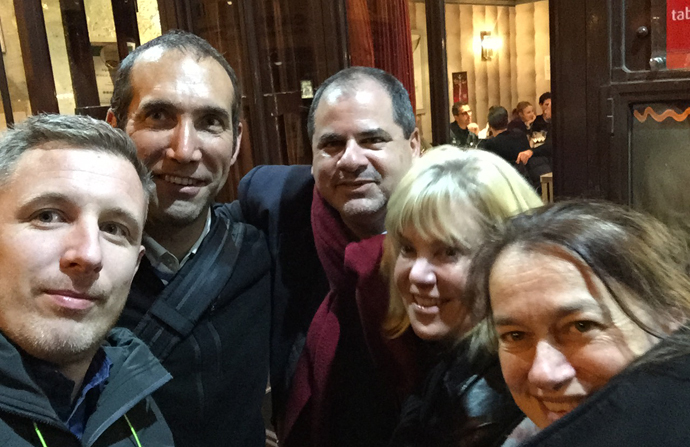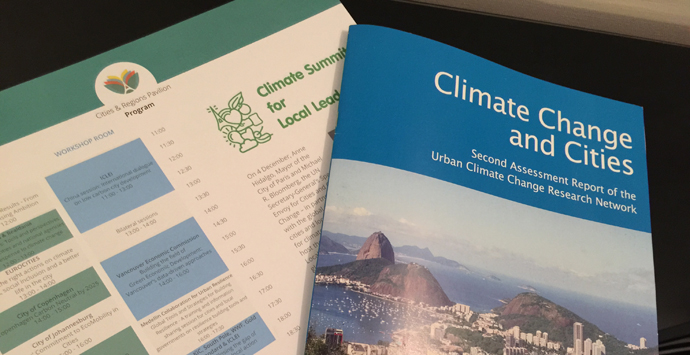Notes from COP 21: tools and action
On Saturday I took part in a panel discussion titled ‘Global Tools and Strategies for Building Resilience’ at the Cities & Regions Pavilion of COP 21. It was hosted by the Medellin Collaboration on Urban Resilience (MCUR), with panelists from UNHabitat, ICLEI, C40, 100RC, UNISDR, UCCRN, and Mayors and/or chief resilience officers from Dakar, Panama City, and Paris. MCUR is a group of ten international organisations that have come together with goals to support knowledge transfer and to mobilise financial resources to help cities become more resilient.
Although AECOM is working across a number of the programmes being showcased during the session and are supporting development of all kinds of tools, I was speaking on behalf of UNISDR. I was promoting their ‘Making Cities Resilient Campaign,’ explaining its connection to the Sendai Framework for Disaster Risk Reduction, outlining UNISDR’s Ten Essentials for disaster risk reduction, and specifically sharing our progress in evolving the City Resilience Scorecard co-developed by AECOM and IBM.
The key point I tried to make today – Action Day – is that the tools themselves are not an outcome. Right from the outset we looked on the scorecard as a conversation starter, a way to meaningfully engage with cities. The real value comes from building capacity in the cities and through cross-disciplinary dialogue. The tools support an understanding, but they must lead quickly to action and commitment if they are going to gain traction. We know that the scorecard has sparked dialogue in the 30 cities where it’s being tested and we’ve received especially frank and helpful feedback from the 5 cities in the EU (UK, Sweden and Portugal) that are participating in a funded pilot study (U-SCORE). I spoke today about this project, some of the feedback and the ideas we have to further refine and improve the scorecard.
Walking back out of the conference centre, through tight security, I bumped into clients and friends from cities and businesses in Australia (#MAV) and the UK (#Bioregional) – all people with great intentions fighting to make a difference in their cities – and then enjoyed catching up with the rest of the AECOM team.

Ben Smith (left) is a director of sustainable development for AECOM.







